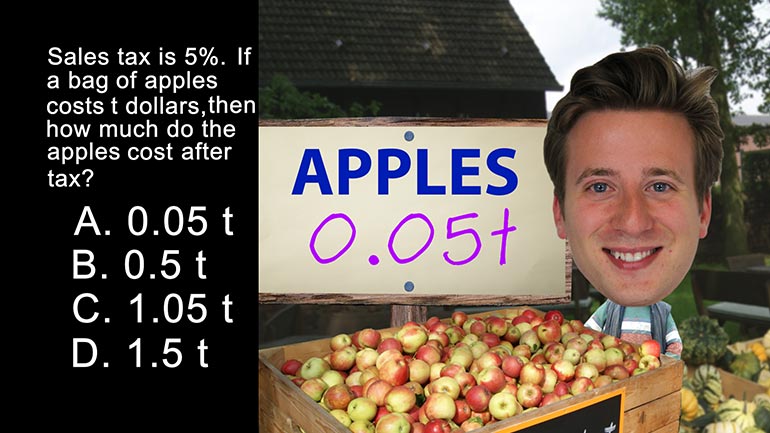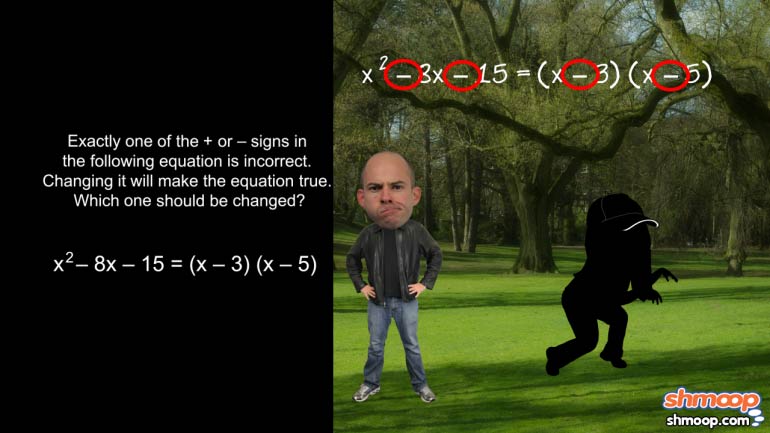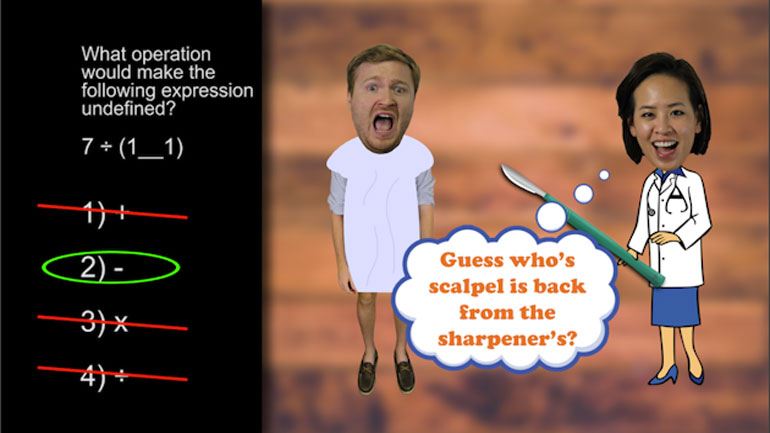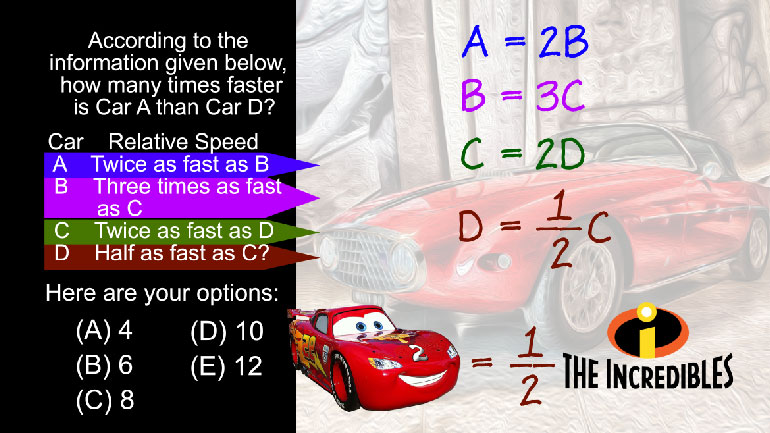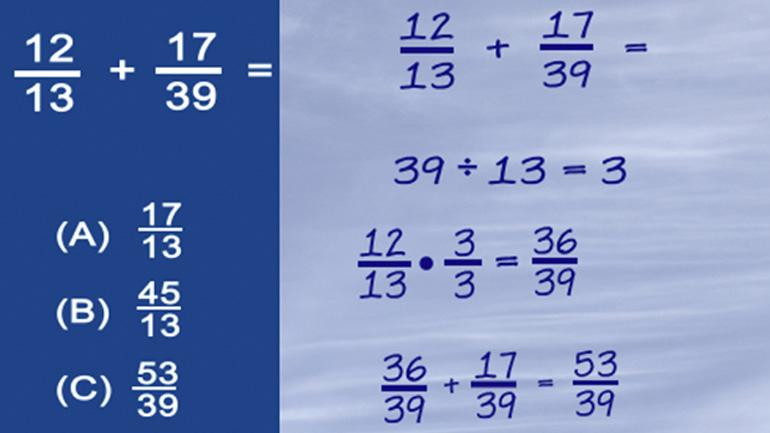ShmoopTube
Where Monty Python meets your 10th grade teacher.
Search Thousands of Shmoop Videos
Basic Algebra Videos 43 videos
GED Math: Expression and Equations Drill 1, Problem 1. How much do the apples cost after tax?
In this GED Math Equation, figure out how far Dmitri has travelled in his sleigh ride down the hill.
Pick the expression that best represents the cost in dollars of riding m miles in a taxi.
Using the Multiplicative Inverse to Solve Equations 3823 Views
Share It!
Description:
The multiplicative inverse sounds like a weird sci-fi concept, but it's really just multiplying a fraction by its reciprocal—otherwise known as the same fraction flipped upside down. It's like an roller coaster ride for fractions! Just make sure they don't eat too much cotton candy beforehand.
Transcript
- 00:04
Using Multiplicative Inverse to Solve Equations, a la Shmoop.
- 00:13
Whenever there's a snowstorm, hailstorm, windstorm, sandstorm, any kind of storm...
- 00:17
... your parents go a little crazy stocking up on canned goods.
- 00:21
Right now, the stack of cans in the basement is about eleven feet high...
- 00:27
Your basement's pretty roomy. Its ceiling is twenty feet high. You could play basketball
Full Transcript
- 00:30
down there...
- 00:31
If it weren't for all the hoarding.
- 00:34
If the tower of cans grows three-quarters of a foot each month, how many months will
- 00:42
it take for all those canned beets and carrots to reach the ceiling?
- 00:46
Here are your options: First, we need to write this out in an equation.
- 00:54
Let's see if we can find a piece of paper and pencil in all this junk.
- 00:58
Okay, so we'll describe this as...
- 01:00
Current height of the cans...
- 01:02
Plus growth rate...
- 01:06
Times number of months... for which we'll use M as the variable -- notice the clever
- 01:10
first letter thing there -
- 01:15
Equals height of the ceiling which is 20 feet. We're solving for number of months, so that
- 01:22
value is M
- 01:25
Here's our finished equation: First, we need to subtract eleven from each
- 01:33
side.
- 01:33
We know you wish you could subtract that eleven-foot-stack of canned peas from your life, but this is
- 01:39
just hypothetical. Sorry.
- 01:41
That leaves us with three-fourths X on the left and nine on the right.
- 01:46
In order to get rid of the fraction, we need to multiply each side by the inverse of the
- 01:50
fraction.
- 01:51
Inverse means to flip the fraction over, kind of like multiplying by its opposite.
- 01:55
Just like you want to live in a house that isn't filled with horded emergency supplies.DELETE
- 01:57
In this case, the multiplicative inverse would be four over three. So multiply both sides
- 02:02
by four over three. That cancels out the three-fourths on the
- 02:06
left, leaving us with X.
- 02:12
Multiply nine by four over three to get thirty-six over three.
- 02:20
Simplify that to get twelve. The answer is B, X equals twelve. So it looks
- 02:30
like you have a year before your basement is totally full.
- 02:34
Look at the bright side. If a disaster does wipe out your house, you can live in a can
- 02:38
fort. Food and shelter in one convenient place.
- 02:42
Plus, you now have the invaluable survival skill of Using Multiplicative Inverse to Solve
- 02:48
Equations.
- 02:48
We'll be at your place when disaster strikes.
Related Videos
Don’t even think about starting up your combo lemonade/fro-yo stand without first making sure you understand piecewise functions. You’re just a...
Domain and range: two terms you will learn to love (or hate with a vengeance). The domain is the set of all possible x values, and range is the set...
Functions briefly flirted with the idea of being infomercial hosts, but they didn’t shine when talking on-camera. They’re much better off in th...
Looking to find function formulas from tables? We've got all you need, right here in this video.
